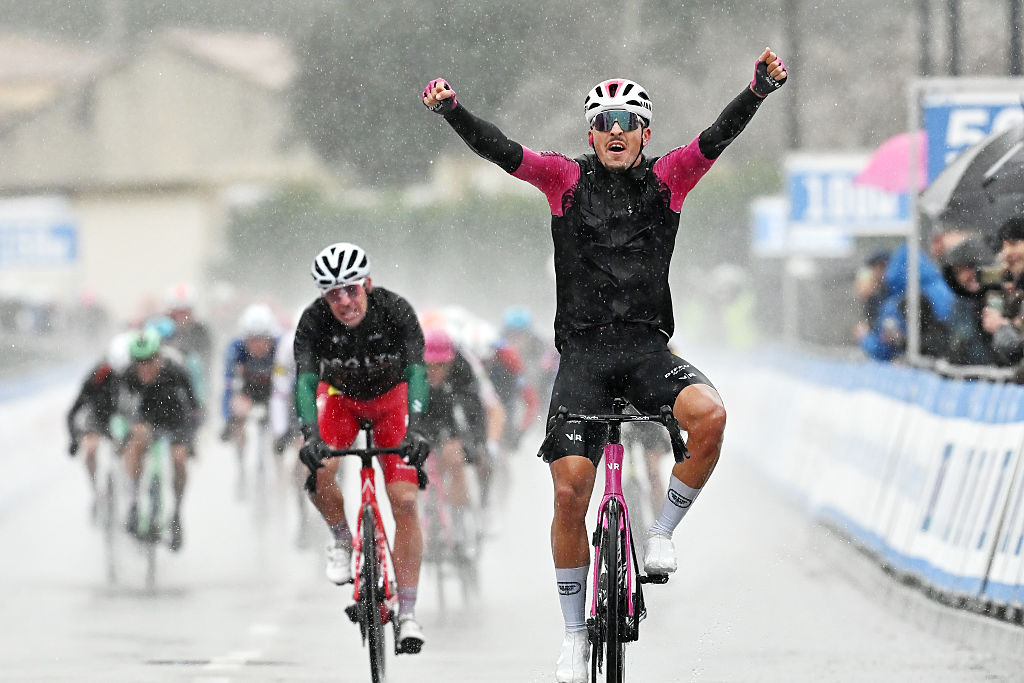Eurobike 2019: all the news, tech and highlights from Eurobike
News, tech and highlights from Eurobike 2019
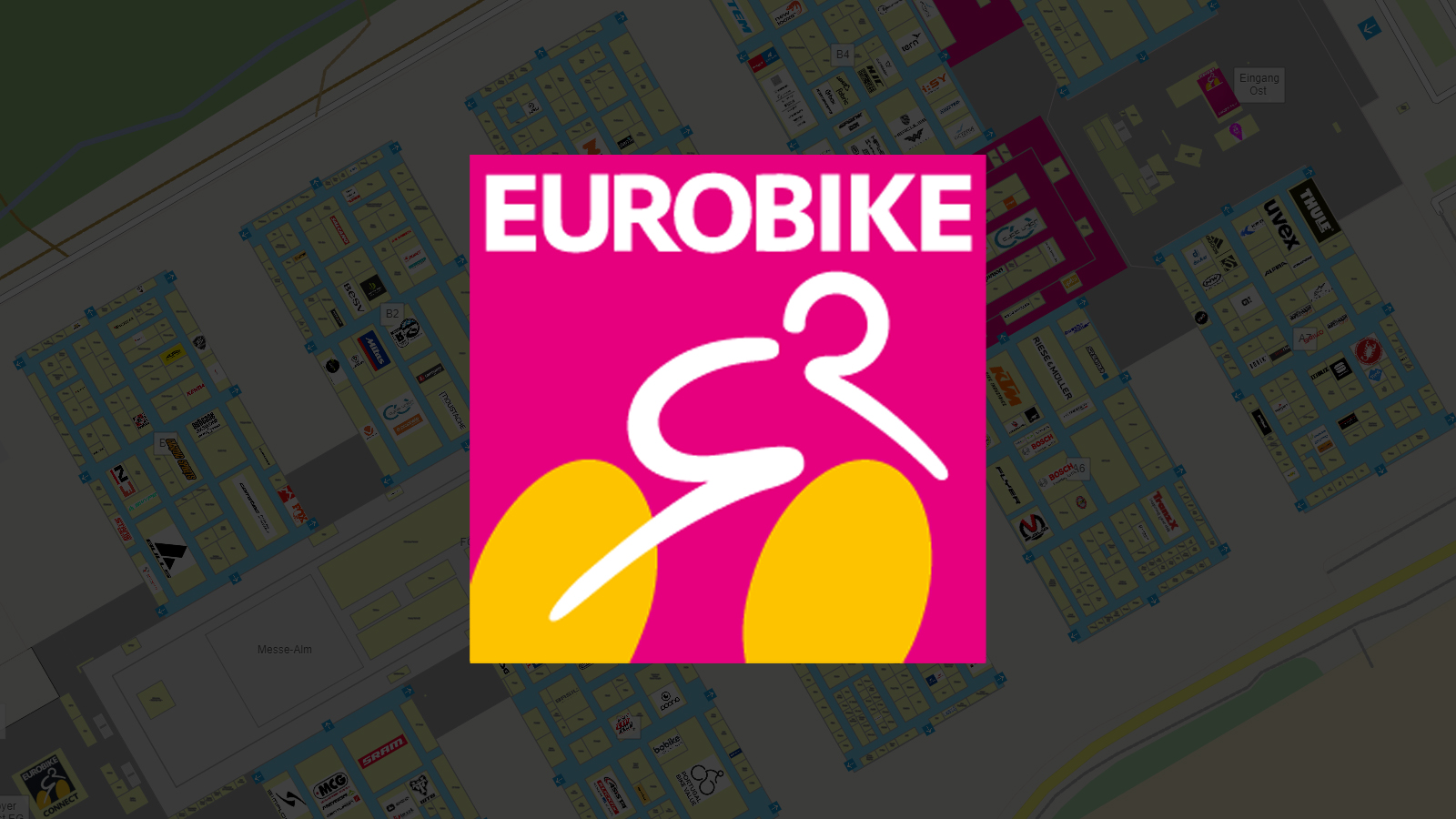
The latest race content, interviews, features, reviews and expert buying guides, direct to your inbox!
You are now subscribed
Your newsletter sign-up was successful
Eurobike 2019, the world's largest trade show for the cycling industry has finally come to a close. Cyclingnews' time in Friedrichshafen was dedicated to hunting down the biggest news and latest tech from the show. At Eurobike 2019, more than 1400 exhibitors showcased their hard work to the industry and global cycling press. As ever, this year's show was packed full of tech, bikes, kit and more.
Below, we have compiled all the news and tech galleries found at Eurobike 2019, so scroll down to see what was on offer at the show.
Eurobike 2019 tech gallery – 44 images from cycling's biggest trade show
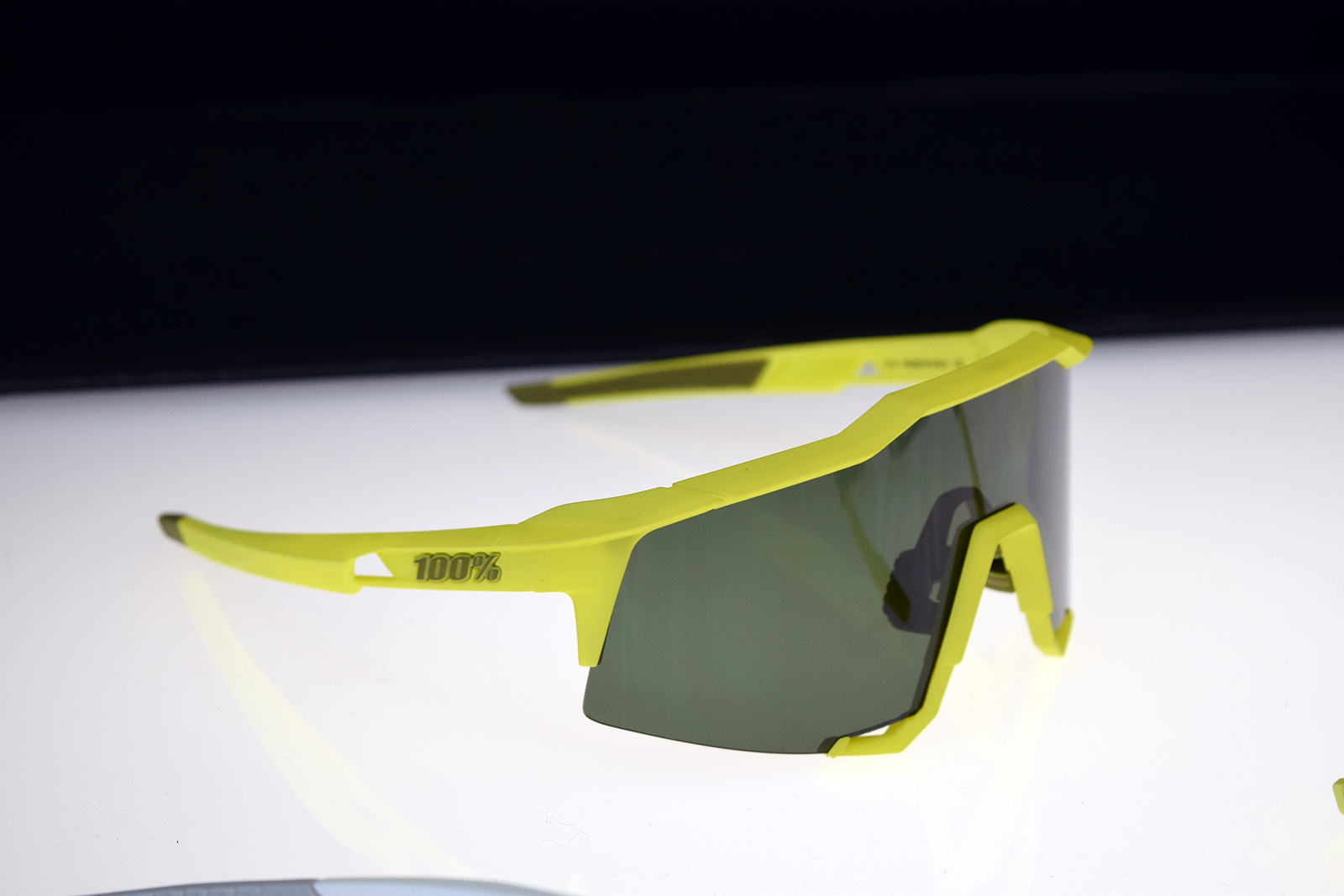
Throughout our time here in Friedrichshafen, Germany, we've been on the hunt for the newest and coolest tech. We've seen hyper-lightweight components from Tune and Selle San Marco, award-winning new shoes from Fizik, new special edition pedals from Look, light-sensitive eyewear from POC, and even Egan Bernal's Tour de France-winning Pinarello.
CeramicSpeed Driven chainless drivetrain shifts, performs under load
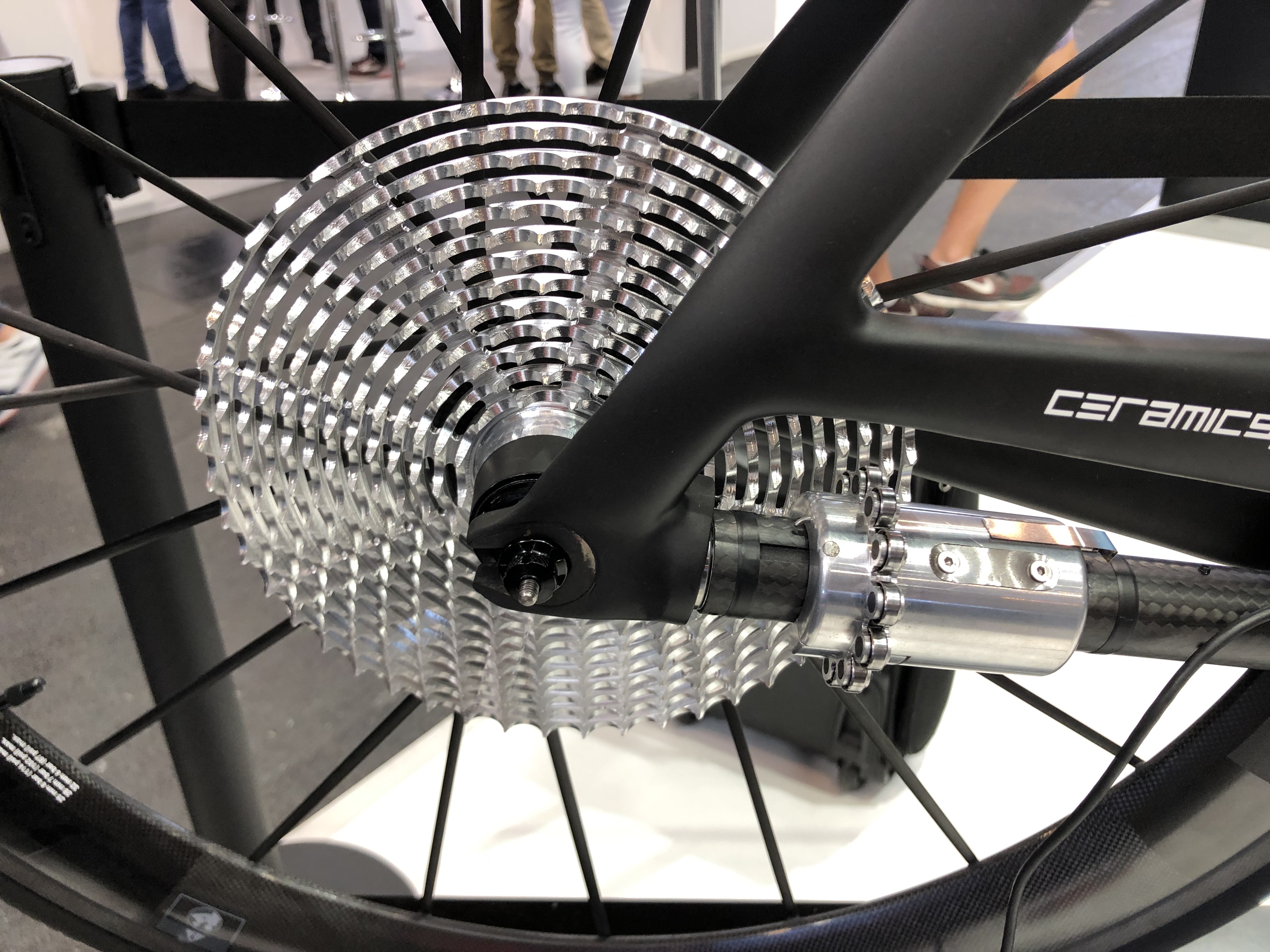
As we reported recently, CeramicSpeed and Specialized have teamed up to retrofit CeramicSpeed Driven to a Venge, proving it to be the most aerodynamic groupset available. Here at Eurobike 2019, CeramicSpeed have tackled their critics head-on with a wireless electric shifting model, an offroad version, as well as a singlespeed version that can perform under load.
CeramicSpeed Driven at Eurobike 2019
The latest race content, interviews, features, reviews and expert buying guides, direct to your inbox!
Wahoo KICKR BIKE announced: a fully integrated smart indoor training bike
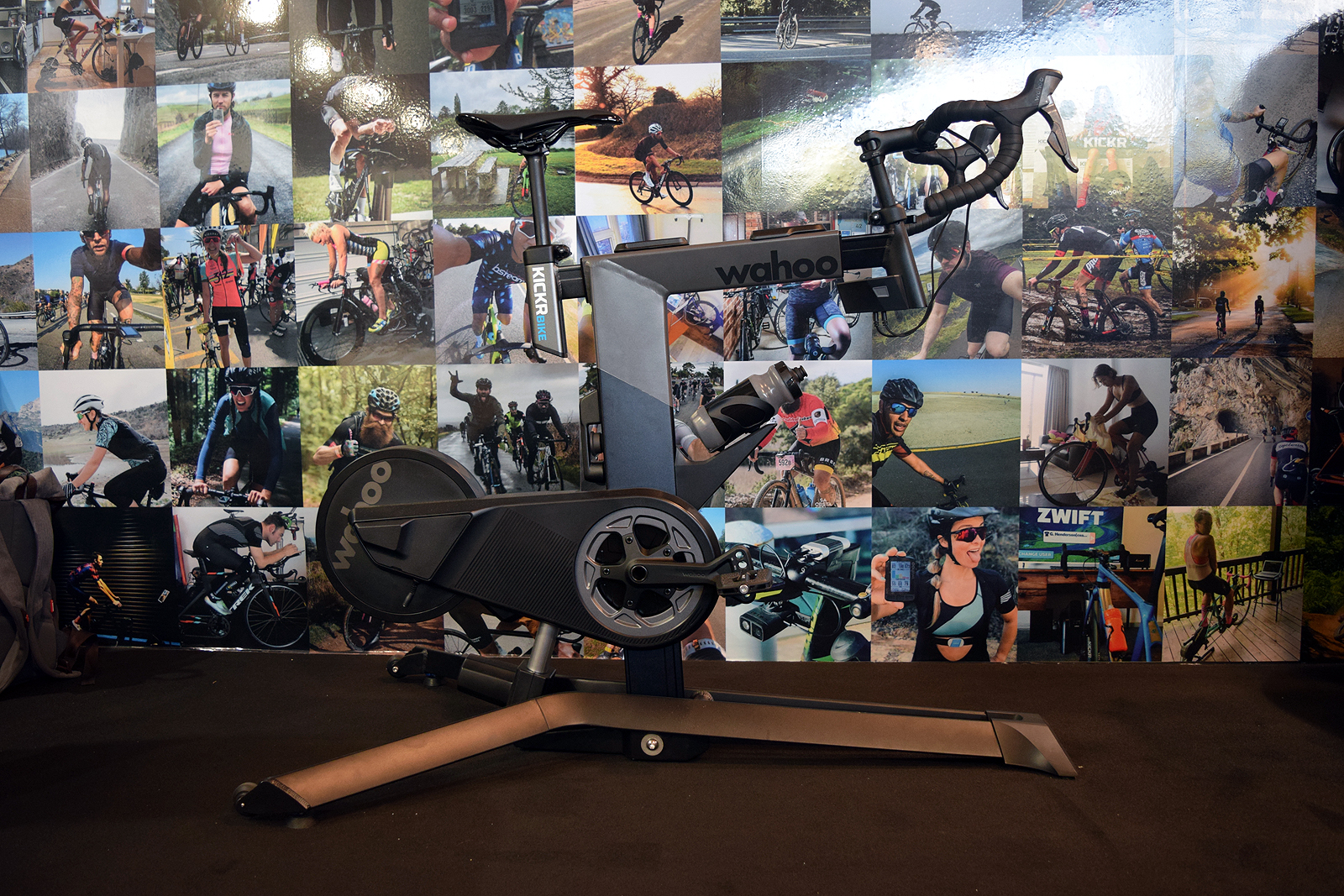
Wahoo told us to expect 'the next big thing', and at 10:00 CET, they unveiled the new, fully-integrated Wahoo KICKR BIKE.
A combination of the primary features found on the KICKR trainer and the KICKR CLIMB, the $3500 KICKR BIKE features a simple set up, advanced personalisation features, tactile feedback, and Gates Carbon Drive for a maintenance-free life.
Fizik Adaptive 3D printed saddle launched in conjunction with Carbon
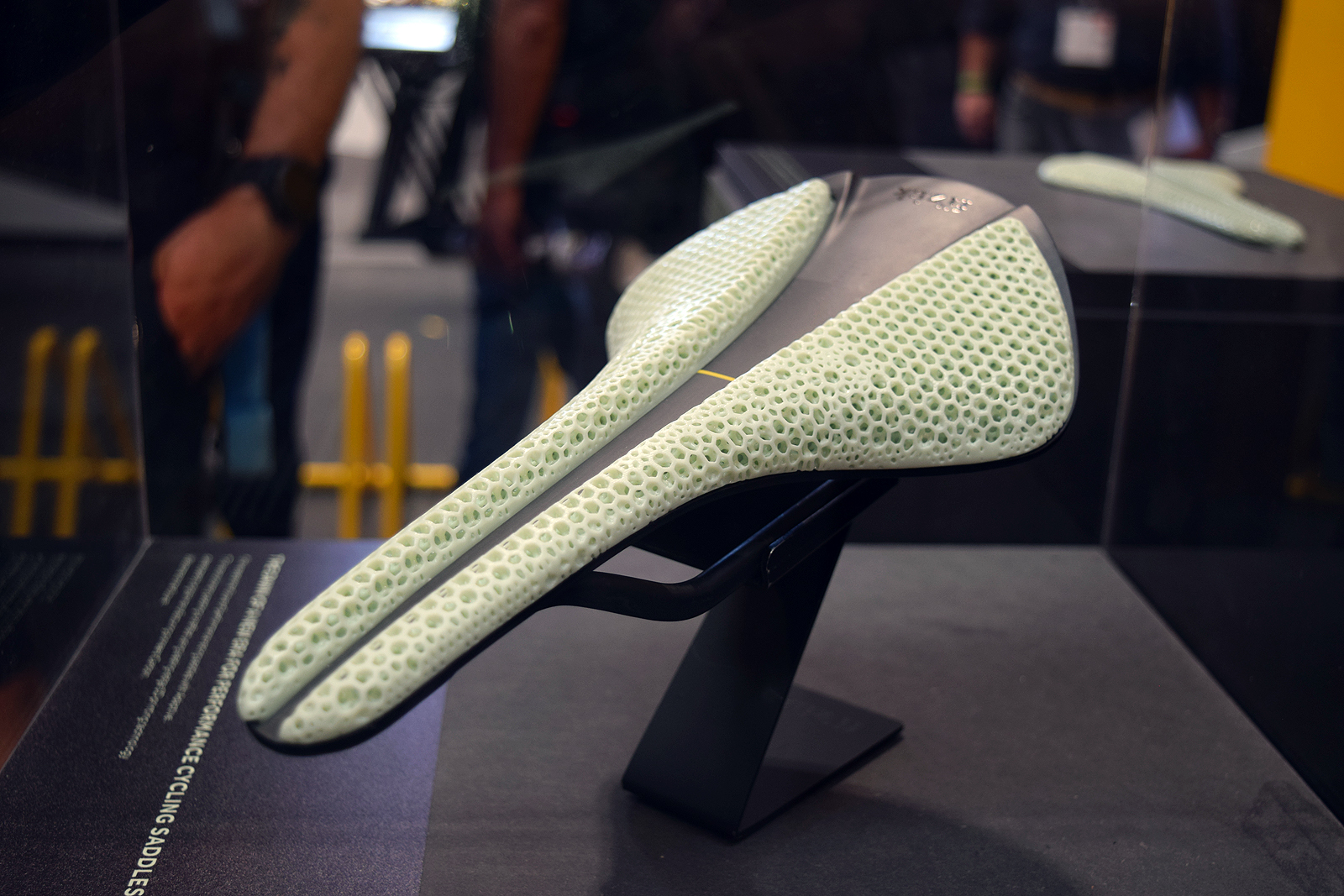
Fizik has launched a 3D printed road saddle, which features their all-new Adaptive technology. Adaptive, created in conjunction with Silicon Valley based company, Carbon, uses Digital Light Synthesis to 3D print a lattice structure.
Fizik Adaptive 3D printed saddle
Eurobike roundup, more tech, and some quirky findings
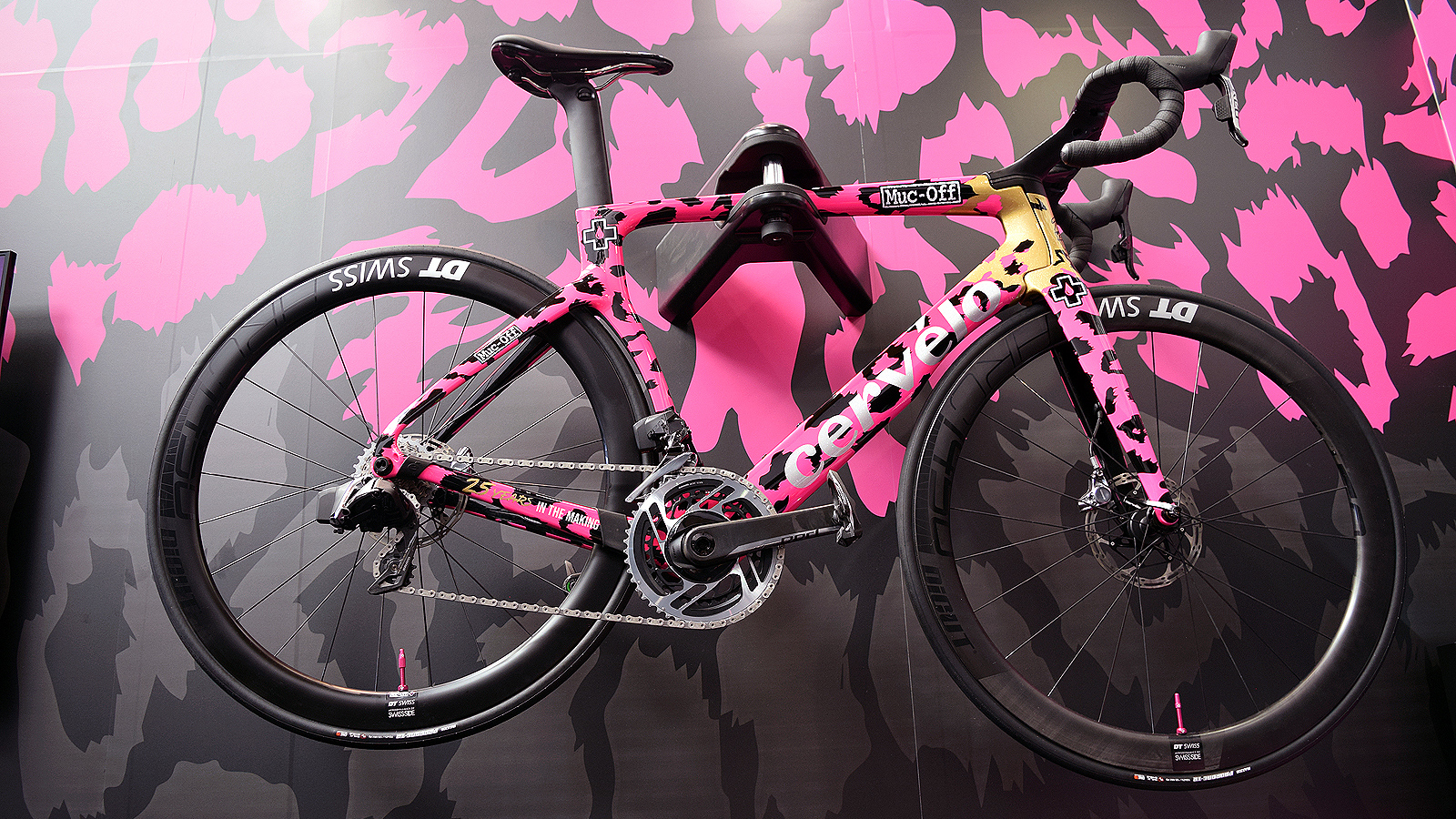
The days are gone where every major bike brand would launch their entire product range at the show, and this lack of routine opens the doors to varying trends at each edition of Eurobike, with 2019 being the year of e-bikes, gravel, and indoor cycling.

